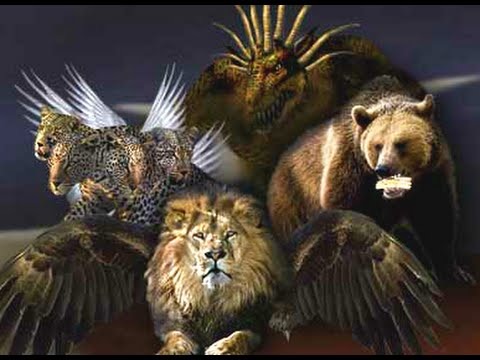Response to Moshe's 7/27/21 - Moshe in Israel Debunking the Church
Moshe is not the mentor for me! Maybe part of it is definition of terms. What "Christian church" means to him seems to be the institution and physical buildings of Christians, whereas what it means to me is the people who have accepted Jesus Christ as their lord and savior.
Response to what Moshe says about the Christian Church.
I am about half way through Moshe's 7/27/21 video, and felt I needed to stop at this point and start responding. I made it to 1:14:36 of his video, then decided I was wasting my time. I will pray for Moshe and his little dog Chief. I will pray that Moshe takes a closer look at what the Bible is saying and read the passages in context, pray for wisdom in interpreting, and look at the big picture rather than get hung up on details that don't correspond with his point of view.
Moshe is correct about some things: the churches as an institution should not be followed blindly, but he really misunderstands most things about the Christian churches. He also is hung up (from what I can tell) about some small-picture things instead of looking at the big picture.
I am at the part where for the second time he brings up the song lyrics to the old hymn "The Old Rugged Cross" intimating that this proves that the Christians are all idolaters, and they are worshiping a physical object rather than Jesus. (The old rugged cross is a metaphor for the work that Jesus did that gave us salvation. This isn't my favorite song either, but I don't see it as idolatry.) He is also hung up on whether Jesus was crucified on a cross or on a tree. I have heard it both ways. Jesus was crucified in a Roman-style crucifixion, and Romans used either a tree, stake, or cross to do so. What's important isn't whether it was a stake, tree, or cross, but that Jesus willingly allowed himself to be crucified as part of God's plan to provide a way for us to be united with him again (aka, salvation through Jesus' sacrifice of himself as payment for all our sins. He is the ultimate "lamb of God who takes away the sins of the world." John 1:29)
Moshe is also pointing to the fact that Christian churches have many denominations, and therefore are not the true church. The reason for the denominations are mostly differences in preferences of small-picture things in most cases (There are some denominations that are off base, such as the Jehovah's Witnesses and the LDS church.) The Methodists are different in their style of worship; the Presbyterians are known for having a different way of being organized on an administrative level; the Baptists really feel a person when being baptized should be completely dunked under the water - most churches I have attended dunk because it is a better "picture" of becoming dead in Christ and rising with him to a new life. However, when I was baptized, we were attending the Presbyterian church, and they sprinkle. The end result is the same: I made a public acknowledgement in front of witnesses that I had accepted Jesus' gift of salvation and intended to follow him and seek the path he had for me, and that's what really counts.
Moshe says Christians have another gospel and another Jesus, but that is not correct. What he is correct about is that there is more and more apostasy in the American churches and among leaders of various churches. Many are compromising their integrity in order to avoid offending people and/or avoid losing their tax exempt status from the government. The Bible does say this will happen and warns against trusting them blindly, but instead to compare what is being said to what the Bible says. I have actually switched churches at least once because the leader of that particular church was promoting things the were contrary to what the Bible says. This is why I prefer to call myself a follower of Christ than claim a particular denomination.
Moshe seems to think that Christianity teaches that we are free to embrace sin, (ignore the law is how I think he put it) which is incorrect. He points to Galatians 5:19-20 and says the Christian church doesn't address the issue - but the churches I have attended have no problem teaching Galatians. What Christians believe is that God gave the law to show that we are incapable of keeping it and getting to the Father under our own power. We need grace and forgiveness for those times when we fail and we needed Jesus' sacrifice on our behalf to be right with God and have eternal life with him. When we become believers and receive the Holy Spirit, the law becomes "written in our hearts," and we know when we are off-track because the Holy Spirit convicts us and helps us repent and move in the right direction. Many religions and even some denominations such as the ones I mention above promote working one's way to heaven, but the truth is we can't get there on works but only by grace. This doesn't mean that we shouldn't have works as those show that we are genuinely following Jesus and his teachings - we are bearing good fruit. If we don't bear good fruit, it suggests that we never really accepted Jesus' salvation and chose to follow him (we are not living by the spirit.) After all, if someone lays his life down to save yours, aren't you grateful and don't you want to please him?
It is ironic that Moshe cited Galatians 5:16-21, but didn't take into account the whole context of the chapter and what was going on at the time it was written. Many gentiles had accepted Jesus as their savior and were following him, but some Jews were telling them they couldn't enter the kingdom of heaven if they weren't circumcised and followed the Jewish law. This seems to be exactly what Moshe is doing, at least in this video that I watched. Paul says "The entire law is summed up in a single command: 'Love your neighbor as yourself.''' Galatians 5:14. But Paul also says that they/we were to "live in the spirit" and avoid the sinful nature. The Spirit (Holy Spirit in all of us who have accepted Jesus) would be our helpmate and guide us away from sin if we stay in tune with Him.
Next he covers the "eat anything you want" passage. (Acts 11) He's saying that it doesn't say that Jews (like Peter in the passage) are free to eat formerly forbidden meat, but actually it does and gives the reason why it is now acceptable: removing the eating barrier gives the Jewish believers in Christ access to the whole world of people of various cultures for the purpose of evangelizing. This doesn't mean that they can't keep kosher if they feel God has placed that on their hearts to do so, but it's not a one-size-fits all world because the law is written on each individual's heart.
It seems apparent that this guy is not feeling the freedom that Jesus provides. He's using the straw-man argument - He states there's no church (we are all a bunch of liars, are of the devil) and that its impossible for the church to fall away because it was never in. This is his opinion, and saying it doesn't make it so. Furthermore, by saying the church was never in, he is contracting what the Bible says. As I mentioned above, there is apostacy creeping into the church. Some are falling way - God is sifting the wheat from the chaff as we speak.
Moshe also says that the Church wasn't in existence until Constantine, 300 years after Christ's death and resurrection, but Jesus renamed Simon, giving him the name Peter, which means "the rock" and said upon him He would build his church. Pentecost took place 50 days after Jesus ascended into heaven and that is when the church (people) started. At this time the Holy Spirit came to dwell in the believers. This leads me to believe that Moshe views the church as an institution rather than a body of believers.
Moshe seems rather hostile toward gentiles and doesn't provided evidence aside from a few verses taken out of context and his firm belief that the Christian churches are spouting the words of the devil from the pulpit. I need to know why he thinks what he thinks - not just what he thinks.



Comments
Post a Comment